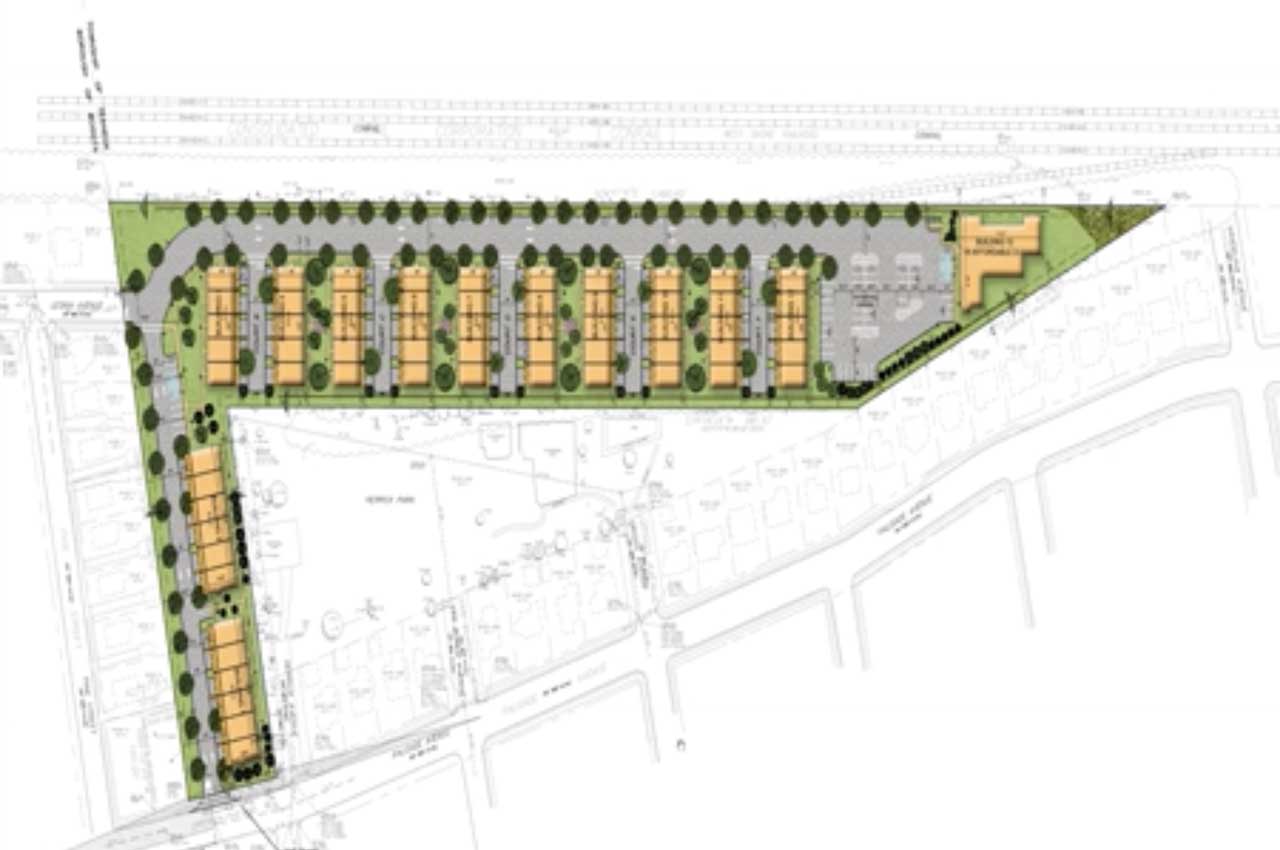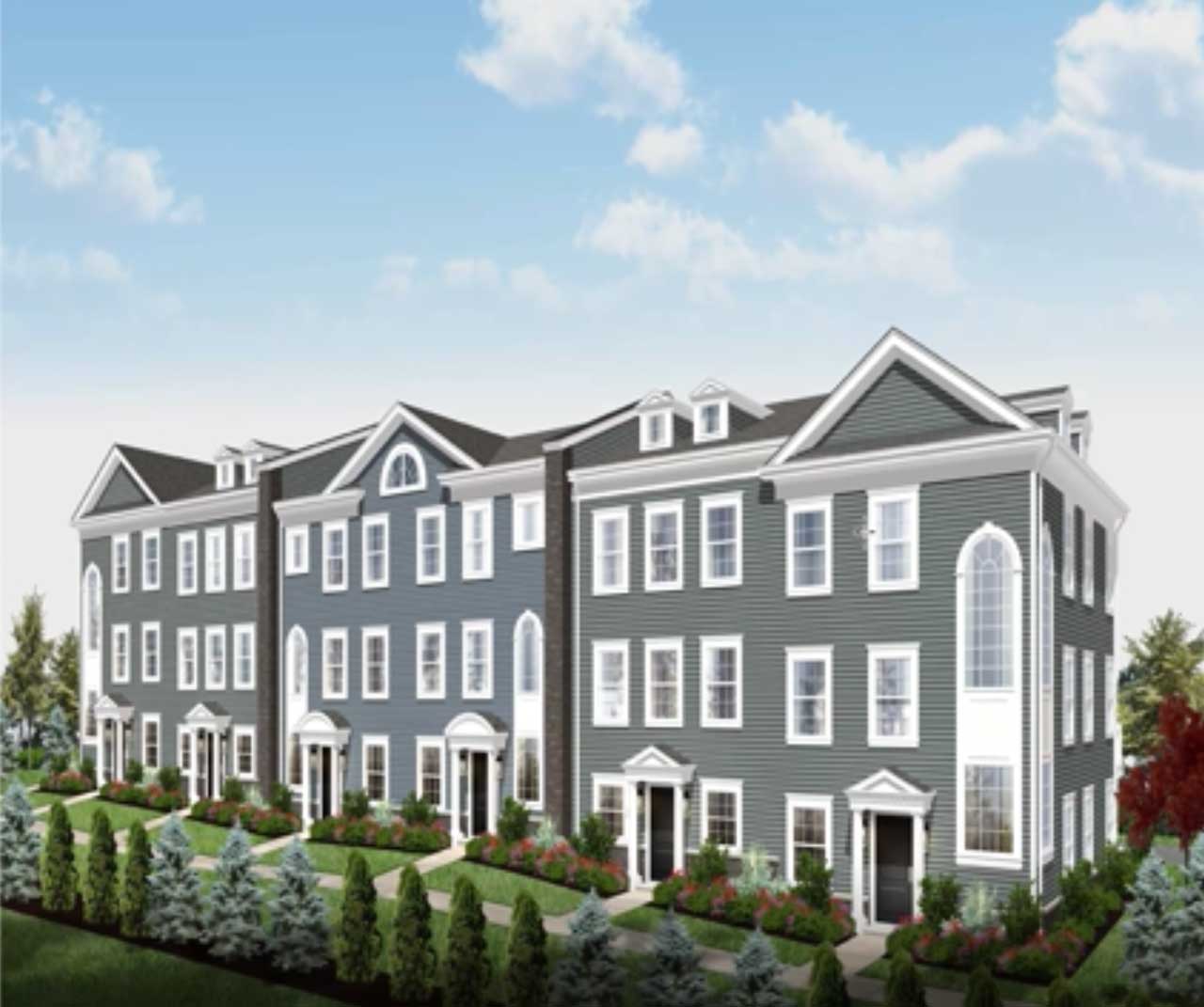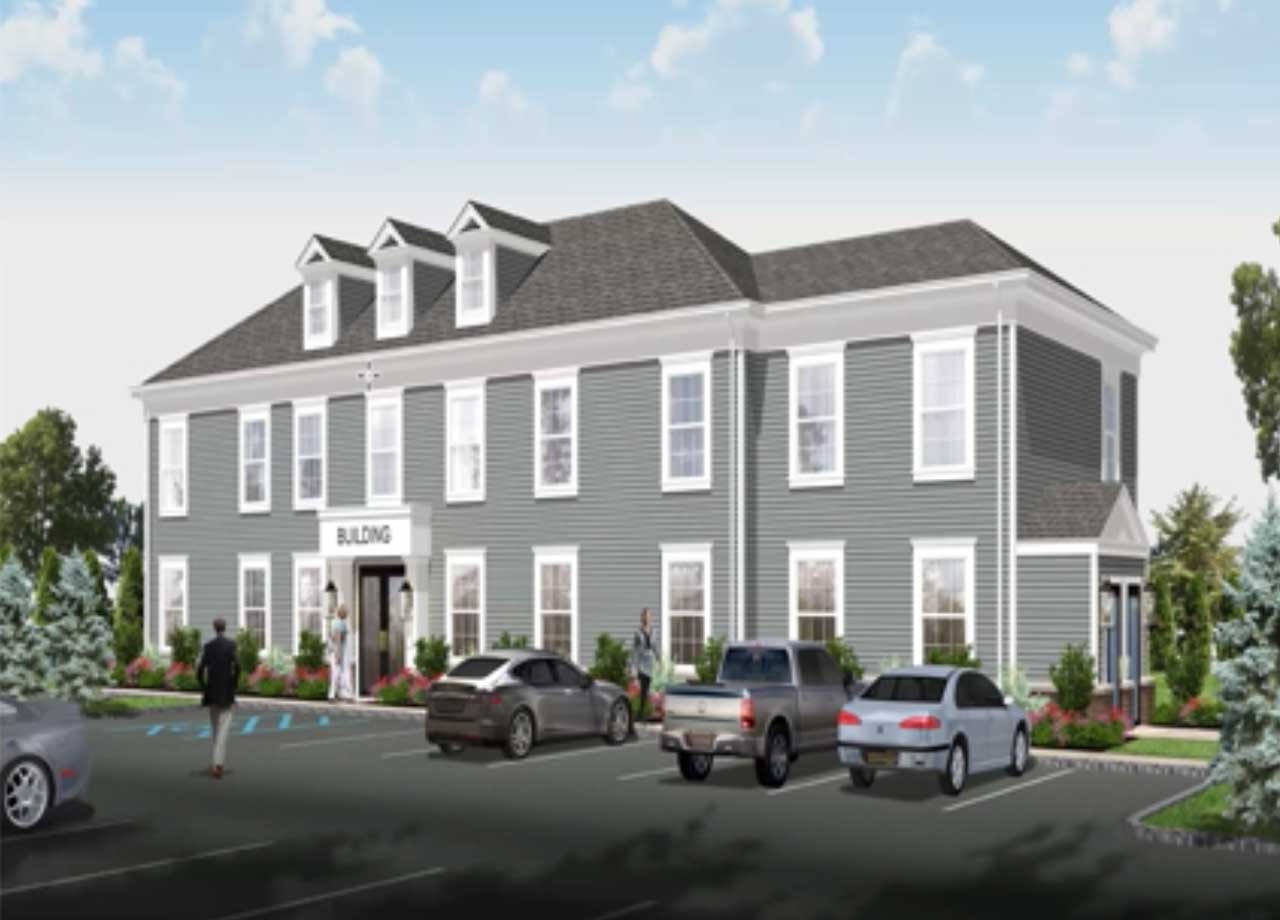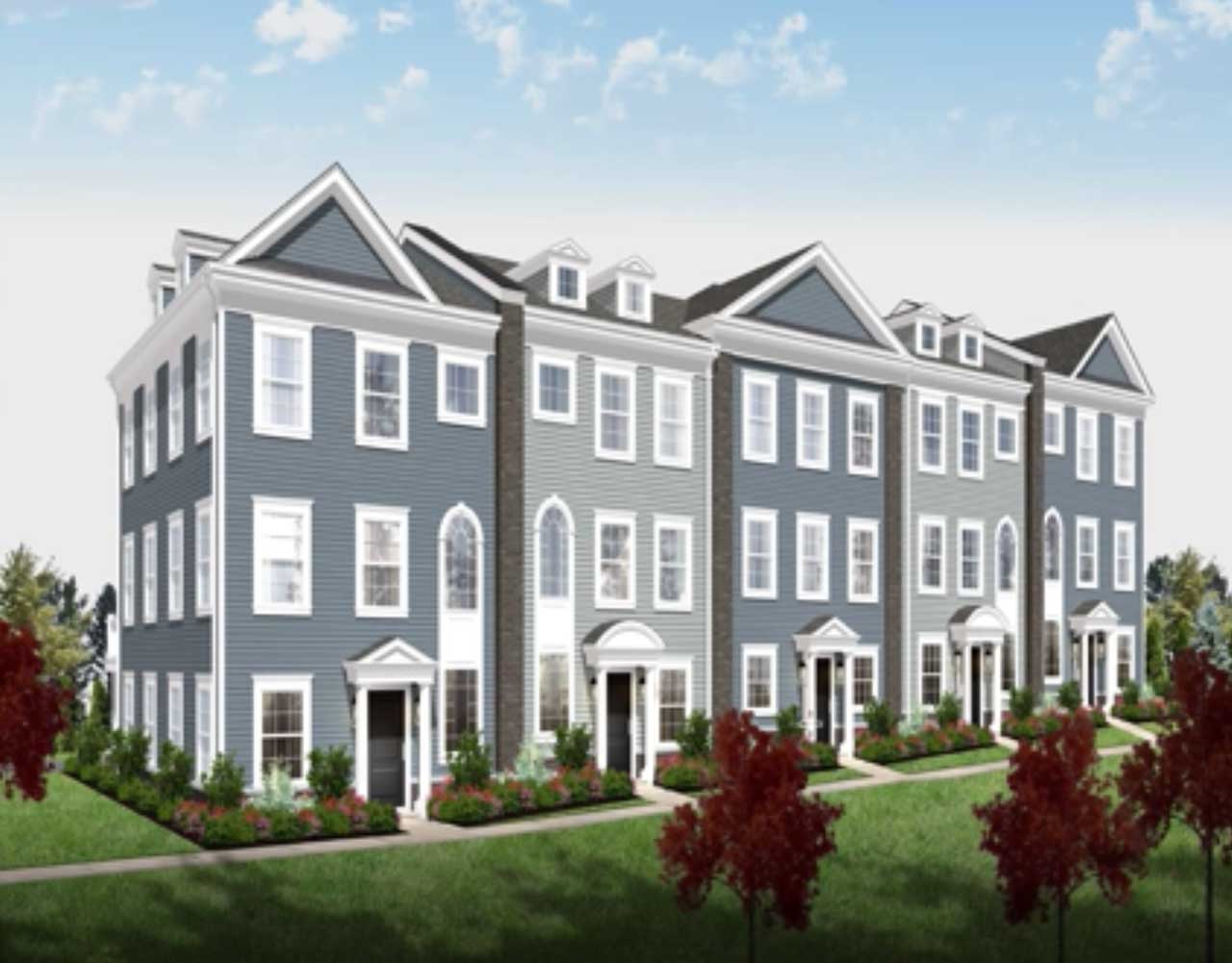
An approved plan that would create a new multi-family townhouse community has come under fire via two separate legal actions that allege homes for those with moderate incomes in the project will be “separate and distinctly unequal.”
Late last month, two lawsuits were filed over a Kushner Real Estate (KRE) Acquisitions scheme to redevelop a property at 520 Palisade Avenue. The first complaint was initiated by several residents of the township, while the second was brought by non-profit Fair Share Housing Center (FSHC).
KRE’s development application, approved by Teaneck’s planning board during their December 9 meeting last year, involves constructing 78 homes consisting of 62 townhouse dwellings and 16 affordable housing units. Drawn up by Westwood-based firm Zampolin & Associates, the townhouse portion of the L-shaped lot will comprise twelve three-story buildings.

The easternmost portion of the property will consist of a single, two-story building with 16 units set aside for low- and moderate-income families, with a parking lot dividing the structure from the neighboring townhouses. The lawsuits allege that reality will create de facto exclusion at the future development.

“[KRE’s application] seeks to segregate affordable units rather than integrating with the market rate units throughout the developments,” claims the lawsuit filed by Teaneck residents. “Notably, the affordable units will not only be segregated but will be of lesser quality and not provide the same amenities as the market rate units.”
The 520 Palisade Avenue property is located within the town’s Residential Affordable Housing Overlay Zone, which requires all affordable housing units be integrated in future developments. The residents’ lawsuit argues that Teaneck’s planning board “violated its own regulations by approving a layout and design in which the affordable housing units are separate and distinctly unequal and placed in the most remote portion of the property.”
FSHC’s filing does recognize that KRE Development Group “has historically developed inclusionary housing on other sites with fully-integrated affordable housing units,” but argues that they “find no basis in the record…or in law for the lack of integration of the low- and moderate-income units” at their future Teaneck project.

Their lawsuit also cites the township’s Affordable Housing ordinance as evidence, which allegedly dictates low- and moderate-income units in inclusionary projects be integrated with market units “to the extent possible.” Their case furthermore claims there is “nothing in the [town’s] Housing Element and Fair Share Plans [that] provides for any exception to the affordable housing ordinance integration requirement.”
The lawsuits allege that members of the public “were denied the ability to provide comment during a November meeting as afforded by law” and “were denied the ability to complete questioning of [KRE’s] experts even though several requests to do so were made.” The cases argue that “despite various concerns that were brought during a December meeting, the board approved the project.”
KRE Acquisition has not responded to our inquiry seeking comment on the lawsuits, which both name Teaneck’s planning board and the Bridgewater-based company as defendants. FSHC’s complaint additionally included Bergen County and the State of New Jersey as defendants.

